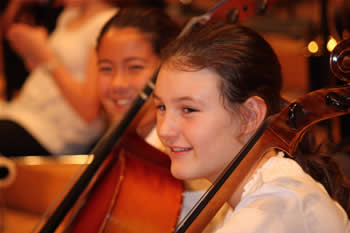For reasons not entirely clear, Spanish classical music seems to be all the rage nowadays. Montsalvatge’s El Gato con Botas (Puss in Boots) was nominated for a Grammy, and the NC-trained artist who helped produce it – Mac McClure – continues to record Spanish works in great profusion for the outstanding specialist label, Columna. Closer to home – much closer – there’s a remarkable pianist at Peace College whose dissertation on Isaac Albéniz is bearing tangible fruit (unlike some scholarly tomes): he’s studied and prepared a new edition (being published by Henle) of the Spanish master’s striking – and strikingly unknown – 1897 score “La Vega,” which merges “traditional” nationalistic influences and French impressionism with astonishing success.
The premiere of the new edition of “La Vega” was the highlight of this young Ph.D.’s most recent recital, heard at Peace College on April 20. The concert was newsworthy as well as noteworthy because it drew a substantial crowd of Peace dignitaries and donors and their families and because it was divulged that the pianist – Milton Rubén Laufer – will follow up the all-Albéniz program he presented with a four-year plan involving performances of all of Albéniz’s piano music, to be offered here and then taken on the road to other US cities and Europe. This is, as someone said, a very, very big deal – for Laufer, for Peace, and for music lovers here and elsewhere.
What thus turned out to be the first installment of a long-term cycle began with some of the composer’s best-known little salon pieces, works many fans of Spanish music – piano and otherwise – have admired for years, in various guises. These encompassed “Malagueña,” Op. 165/3, and four pieces from the collection known as the Suite española, Op. 47: “Granada” (a serenata, listed as No. 1), “Sevilla” (sevillanas, No. 3), “Asturias” (leyenda, No. 5), and “Cuba” (capricho, No. 8). (The collection began its life with fewer numbers, and the last two pieces played were not originally part of it.)
Several of these items are perhaps better known in versions for guitar – thanks to a Decca Lp by Segovia, this writer has loved “Granada” and “Sevilla” for over 50 years – so it came as something of a revelation to learn, from guest speaker (and Albéniz authority and scholar) Walter Clark, of UC Riverside, that Albéniz didn’t write a single note of music for guitar. Nope, what sounds so idiomatic when played on the guitar was meant to be piano music, through and through.
The playing was spell-binding, thanks to Laufer’s secure technical command, his inherent musicianship and artistry, his sensitivity, his long immersion in the composer’s music, and – in all likelihood – his personal heritage, since his parents were from Puerto Rico and Cuba (and his mother danced with José Greco). Even the best-known pieces sounded fresh, new, and exciting. And after the intermission and Clark’s informative talk – a multi-media affair with sound clips, live guitar, overheads – the works, in other words – the virtually unknown “new” work, “La Vega,” was even more meaningful and impressive than, heard without such careful preparation, it might otherwise have seemed. Clocking in at about 15 minutes, it was the evening’s longest and most complex piece, and Laufer realized it magnificently, etching every brush-stroke and nuance with awesome skill. It was, in a very real sense, a revelation, and the audience clearly knew it, for the response was at once enthusiastic and heart-felt. Bravo! We look forward to more – much more – in future seasons.
(Several people in attendance had the rare opportunity to have heard this program twice – at Peace and a few days earlier, at a private Hauskonzert of sorts. The program was identical, but the music seemed not quite the same, perhaps thanks to different pianos in different venues. At Peace, what was polished earlier was by all measures even more profound and inspired. Granted, this may merely reflect a personal point-of-view – but it underscores the importance of hearing music more than once – and the fact that no two performances are alike.)











